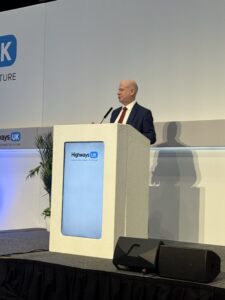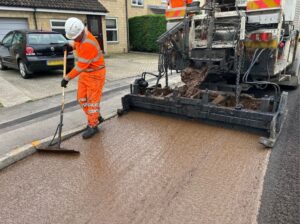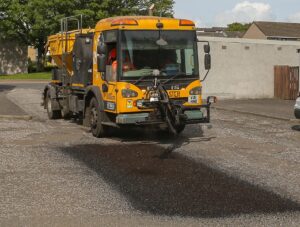Nottinghamshire County Council is to move away from temporary road repairs as much as possible once new recommendations from a recent review are implemented.
The council has revealed the outcome of the cross-party panel’s highways assessment last month following several meetings aimed at improving the way it repairs potholes and pavements.
The report provided about 50 recommendations on ways to improve repairs and the general state of Nottinghamshire’s roads, with figures revealing the authority repaired 476,000 potholes in five years, reports the Newark Advertiser.
The areas of Newark and Sherwood was the most frequently visited district by Via East Midlands, the council’s highways contractor, with 147,752 potholes repaired over five years.
The Muskham and Farnsfield division racked up the highest total by ward area, at 30,904, which is more than the 28,437 repairs conducted across the entire borough of Rushcliffe over the same five-year period.
Two external assessments were conducted into the county council’s current methods, one by the Local Government Association and another by independent consultant WSP.
The authority also spoke with other county councils to see how work was conducted elsewhere and whether any methods could be used in Nottinghamshire.
It was recommended the council move away from its existing patching repair work and prioritise permanent road replacements as much as possible.
The highways review was debated by members of the council’s policy committee for the final time before its recommendations are to be put into action.
County council leader Ben Bradley said: “There are obviously things we have a statutory duty to do, particularly from a safety perspective, and there will be emergency repairs we still have to make.
“We can’t get away from that, but we are very much aware there are some such issues where it’s not an absolute emergency and needs an instant repair.”
“That’s where the shift will go now. From my perspective, we shouldn’t tell the engineers how to do the engineering, but more set the policy and let them do the best thing by it.
“In the short-term, there will still no doubt be the use of temporary repair methods as an emergency fix, but we would like to move away from that as much as we possibly can.”
The use of temporary repair methods has previously led to criticism of the council from residents.
Several councillors described the state of the county’s roads as the biggest issue on the doorstep in May’s election, with the council planning to improve its communication with residents on when repair jobs will take place.
This will come alongside a shift from a one-year to a three-year investment programme in road repairs, which the council hopes will give residents more clarity on when their road is due for replacement and repair.
























